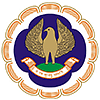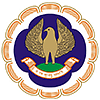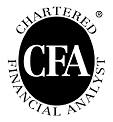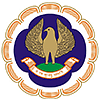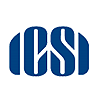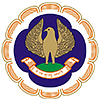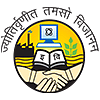BCom Subjects List: Semester Wise Syllabus, Core & Electives

Latest Updates for BCom
- 25 April 2024 :
ICAI announced the Foundation enrolment cutoff date for the Sep exams, The registration for Sep 2024 exam is May 1, 2024.
- 24 April 2024 :
ICSI CSEET Admit Card 2024 for May session has been released on Apr 24, 2024.
- 23 January 2024 :
NPAT application form 2024 can be submitted till May 20, 2024.
The BCom syllabus spans 3 years and is strategically divided into six semesters. The B.Com syllabus comprises core and elective subjects. The B.Com subjects offer a range of topics from Accounting, Business Economics, Business Law, Business Mathematics and Statistics, Financial Management, Marketing Management, and more. The B.Com syllabus pdf of top colleges in India can be accessed from their official websites.
B.Com 1st year subjects include foundational courses in financial accounting, economics, corporate accounting, laws, and economics, whereas, the 2nd year subjects delve into advanced topics such as income-tax, HR, business statistics-mathematics, economy, etc. B.Com 3rd year subjects cover topics like marketing, financial management, auditing, tax laws and discipline-specific subjects.
B.Com course helps graduates obtain industry-relevant knowledge and career expertise. The course provides them with a variety of career options in both the public and private sectors, with positions like bank manager, accountant, finance specialist, etc.
Table of Contents
B.Com Subjects List - Core & Electives
B.Com subjects comprise important topics related to commerce and accounting. B.Com general subjects are mainly based on accounting, banking economics, and all the necessary topics related to commerce and business. B.Com syllabus subjects are generally divided into two categories such as core and elective subjects.
Core BCom Subjects
Given below are the core B.Com subjects along with topics covered in each subject:
|
Core Subjects |
Topics Covered |
|
Financial Accounting |
Theoretical Framework, Accounting Process, Computerised Accounting Systems, Business Income, Final Accounts, Accounting for Hire-Purchase and Installment Systems, Consignment, and Joint Venture. |
|
Business Law |
The Indian Contract Act, 1872: General Principles of Contract, The Indian Contract Act, 1872: Specific Contracts, The Sale of Goods Act, 1930, Partnership Laws. |
|
Business Mathematics and Statistics |
Matrices, Differential Calculus, Basic Mathematics of Finance, Uni-variate Analysis, Bi-variate Analysis, Time-based Data: Index Numbers and Time-Series Analysis. |
|
Company Law |
Documents, Management, Dividends, Accounts, Audit, Winding Up, Insider-Trading, Whistle-Blowing. |
|
Income Tax Law and Practice |
Computation of Income under different heads, Computation of Total Income and Tax Liability, Preparation of Return of Income. |
|
Computer Application in Business |
Word Processing, Preparing Presentations, Spreadsheet and its Business Applications, Creating Business Spreadsheet. |
|
Marketing Principles |
Marketing Concepts, Market Research, Consumer Behavior, Product Management, Promotion, Pricing |
|
Auditing and Corporate Governance |
Auditing Standards, Internal Control, Corporate Governance Principles, Audit Reports, Ethics in Auditing |
|
Management Principles and Application |
Planning, Organizing, Leading, Controlling, Decision-Making, Organizational Structure |
|
Human Resource Management |
Recruitment, Training and Development, Performance Appraisal, Employee Relations, HR Policies |
|
Cost Accounting |
Cost Concepts, Costing Methods, Budgeting, Variance Analysis, Cost-Volume-Profit Analysis |
|
Business Communication |
Written and Oral Communication, Business Correspondence, Presentation Skills |
|
Micro and Macro Economic Principles |
Supply and Demand, Market Structures, National Income, Monetary and Fiscal Policy |
|
Environmental Studies |
Environmental Issues, Sustainable Development, Corporate Social Responsibility |
|
Corporate Accounting |
Corporate Financial Statements, Mergers and Acquisitions, Share Capital, Dividends |
|
Fundamentals of Financial Management |
Financial Planning, Capital Budgeting, Working Capital Management, Financial Analysis |
B.Com Electives Subjects
Listed below are some of the elective subjects along with topics covered in each:
|
Elective Subjects |
Topics Covered |
|
E-Commerce |
Online Business Models, E-Marketing, Digital Transactions, Cybersecurity, E-Commerce Regulations, Supply Chain in E-Commerce |
|
Advanced Entrepreneurship |
Business Planning, Start-up Management, Innovation, Funding Strategies, Small Business Operations, Entrepreneurial Marketing |
|
Advertising |
Advertising Strategies, Creative Development, Media Planning, Consumer Behavior, Brand Management, Digital Advertising |
|
Banking and Insurance |
Banking Operations, Risk Management, Insurance Principles, Financial Products, Regulatory Compliance, Investment Banking |
|
Computerised Accounting Systems |
Software Applications, Database Management, Cloud Accounting, Automated Financial Reporting, Security in Accounting Systems |
|
Indirect Tax Law |
Goods and Services Tax (GST), Value Added Tax (VAT), Service Tax, Customs Duty, Indirect Tax Compliance, Tax Planning |
|
Consumer Protection |
Consumer Rights, Legal Framework, Product Liability, Consumer Advocacy, Dispute Resolution, Ethical Marketing |
|
Indian Economy |
Economic Policies, Fiscal and Monetary Policy, Economic Development, Agriculture, Industrialization, Economic Reforms |
|
Industrial Law |
Labor Laws, Employment Contracts, Industrial Disputes, Occupational Health and Safety, Workers' Rights, Collective Bargaining |
|
Corporate Tax Planning |
Tax Strategies for Corporations, Tax Compliance, Tax Credits and Incentives, Transfer Pricing, Corporate Restructuring |
|
International Business |
Global Business Strategies, Cross-Cultural Management, Export-Import Procedures, International Market Entry, Globalization Impact |
|
Investment Fundamentals |
Portfolio Management, Stock and Bond Markets, Risk Analysis, Investment Strategies, Financial Instruments, Diversification |
|
Financial Markets, Institutions and Financial Services |
Stock Exchanges, Banking Systems, Financial Intermediaries, Mutual Funds, Insurance Services, Regulatory Environment |
|
Business Tax Procedures and Management |
Income Tax Procedures, Business Tax Planning, Tax Compliance, Taxation of Business Entities, Tax Dispute Resolution |
Also, Check: BCom Fees in India
Semester-Wise BCom Syllabus
The BCom syllabus is designed to ensure that the students have access to all the vital information they need. The curriculum for the course is divided into three parts: foundation, core and electives, projects. The table below represents the general outline of the B.Com general subjects list as semester-wise:
B Com Syllabus First Year
B.Com 1st year syllabus focuses on fundamental concepts of commerce and business studies. Students can download B.Com syllabus 1st year pdf from the respective university website to know more about the syllabus.
The B.Com 1st semester syllabus and the 2nd semester syllabus are detailed in the table below:
|
Semester I |
Semester II |
|
Environmental Studies |
Business Communication (Language- English/Hindi/MIL) |
|
Financial Accounting |
Corporate Accounting |
|
Business Law |
Corporate Laws |
|
Micro Economics |
Macro Economics |
B.Com Syllabus Second Year
B.Com 2nd year syllabus covers aspects related to foundation in financial reporting, measures of central tendency, probability, types of companies and laws, recruitment, selection, and training practices, etc. The table below details the B.Com 2nd year subjects:
|
Semester III |
Semester IV |
|
Human Resource Management |
Cost Accounting |
|
Income-Tax Law and Practice |
Computer Applications in Business |
|
Management Principles and Applications |
Business Mathematics |
|
Business Statistics |
Entrepreneurship Fundamentals |
B.Com 2nd Year Practical Subjects
The B.Com subjects have practicals that are offered in the 2nd year. Below are practical subjects list:
- Income Tax Law and Practice
- Computer Applications in Business
- Cost Accounting
- Corporate Accounting
B.Com Syllabus Third Year
B.Com 3rd year syllabus is focused on covering advanced specialization topics related to consolidation of financial statements, activity-based costing, venture capital and business plan, marketing metrics, etc. The table below depicts the BCom 3rd year subjects:
|
Semester V |
Semester VI |
|
Principles of Marketing |
Auditing and Corporate Governance |
|
Fundamentals of Financial Management |
Tax Laws |
|
Discipline-Specific Elective 1 |
Discipline-Specific Elective 3 |
|
Discipline-Specific Elective 2 |
Discipline-Specific Elective 4 |
|
Summer Internship |
Project Work |
|
Discipline-Specific Elective 1 and 2 |
Discipline Specific Elective 3 and 4 |
|
|
Specialisation Wise BCom Syllabus
B.Com course is a three-year-long undergraduate course that helps students to learn about the core areas of commerce and finance and offers several specializations related to the field. Given below is the B.Com subject list for various specialization courses.
|
BCom Specialization |
B.Com Subjects Covered |
|
|
|
|
|
|
|
|
|
|
|
|
|
Other Important Specialisation wise B.Com Subject list:
- B.Com Economics Syllabus and Subjects
- B.Com Information Technology Syllabus and Subjects
- B.Com Banking Management Syllabus and Subjects
- B.Com Professional Accounting Syllabus and Subjects
- B.Com Taxation and Finance Syllabus and Subjects
- B.Com Tourism and Travel Management Syllabus and Subjects
- B.Com Management Studies Syllabus and Subjects
- Distance B.Com Syllabus and Subjects
- B.Com Professional Syllabus and Subjects
Read More: BCom Specialization List
College Wise BCom Syllabus
College-wise BCom syllabi from institutions across India encompass a broad spectrum of commerce subjects, enabling students to develop a solid understanding of business, finance, law, and economics.
B.Com syllabus pdf can be downloaded from the official website of the colleges. However, listed below in the following sections is a semester-wise breakdown of the BCom syllabus for some of the best colleges in India.
Delhi University B.Com Syllabus
Delhi University's BCom syllabus offers a well-rounded education in commerce, including financial accounting, business laws, economics, and management. Students will explore diverse areas of commerce and gain a comprehensive understanding of business principles and practices. Listed below is the BCom syllabus for Delhi University:
|
Semester I |
Semester II |
|
Environmental Studies |
Language: English/Hindi/Modern Indian Language |
|
Financial Accounting |
Business Laws |
|
Business Organisation and Management |
Business Mathematics and Statistics |
|
Principles of Microeconomics/New Venture Planning |
Principles of Macroeconomics/Economics of Regulation of Domestic and Foreign Exchange Markets |
|
Semester III |
Semester IV |
|
Company Law |
Indirect Tax Laws |
|
Income Tax Law |
Corporate Accounting |
|
Indian Economy/Financial Markets and Institutions |
Human Resource Management/Industrial Laws |
|
Banking and Insurance/Financial Analysis and Reporting |
E-Commerce/Investing in Stock Markets |
|
Semester V |
Semester VI |
|
Auditing and Corporate Governance |
Fundamentals of Financial Management |
|
Cost Accounting |
Business Communication |
|
Principles of Marketing/Training and Development |
Personal Selling and Salesmanship/Cyber Crimes and Laws |
|
Computer Applications in Business/Advertising |
International Business/Consumer Affairs and Customer Care/Entrepreneurship and Small Business/Organizational Behavior/Indian Polity and Governance/Office Management and Secretarial Practice/Corporate Tax Planning/Fundamentals of Investment/Management Accounting |
Read More: Delhi University B.Com
Calcutta University B.Com Syllabus
Calcutta University's BCom syllabus focuses on communication, economics, management, and accounting, emphasizing skills and knowledge essential for success in the business world. The semester wise syllabus of BCom offered at CU is detailed in the table below:
|
Semester I |
Semester II |
|
Communicative English and Indian Language |
E-Commerce & Business Communication |
|
Microeconomics I & Statistics |
Company Law |
|
Business Laws |
Marketing Management and Human Resource Management |
|
Principles of Management |
Cost and Management Accounting - I |
|
Financial Accounting - I |
|
|
Semester III |
Semester IV |
|
Information Technology & Its Application in Business |
Microeconomics II & Indian Economy |
|
Business Mathematics & Statistics |
Entrepreneurship Development and Business Ethics |
|
Financial Accounting II |
Taxation I |
|
Indian Financial System |
Cost and Management Accounting -II |
|
Semester V |
Semester VI |
|
Auditing & Assurance |
Environmental Studies |
|
Taxation II |
Computerised Accounting and e-filing of Tax Returns |
|
Economics II and Advanced Business Mathematics/Consumer Behaviour and Sales Management/Public Finance and Taxation/Fundamentals of Computer |
Project Work |
|
Corporate Accounting/Product & Pricing Management and Marketing Communication/Direct Tax: Laws and Practice/DBMS and System Analysis & Design |
Financial Reporting and Financial Statement Analysis/Retail Management and Marketing of Services/Indirect Tax: Laws and Practices/Internet & WWW and Functional e-Business System |
|
- |
Financial Management/Rural Marketing and International Marketing/Tax Procedures and Planning/Computer Applications and e-Business Applications – Practical |
B.Com Course Structure
B.Com course subjects are well-structured and include core and elective B.Com subjects. The aspirants can choose electives based on their specialisations and the research-based projects at the end of the last year. The following points represent the important components of the B.Com course structure:
- VI Semesters
- Core and Elective subjects
- Internship
- Project Submission
B.Com Teaching Methodology and Techniques
B.Com degree encompasses different teaching methods. Besides traditional lecture-based training, the students are trained to aid in various labs, group projects, and other action-based learning methods.
Students can work as a team for the final year project to provide practical solutions to various challenges. Some of the learning methodologies are:
- Practical Sessions
- Group Projects
- Case Methodology
- Workshop
- Lectures
B.Com Projects
Students pursuing a B.Com degree can take up projects on different topics related to portfolio analysis and management, working capital management, the stock market, mutual fund, etc. These projects motivate the students to develop skills in designing and developing various commerce-based domains.
The popular project topics B.Com students are:
- Enhancing Employee Performance Through Monetary Incentives
- Outsourcing Human Resources in Beverage and Food Firms
- Role of E-Commerce in Reducing Operational Cost
- Monetary Incentives and Employee Performance
- Impact of E-Commerce on Emerging
B.Com Reference Books
The reference books for B.Com help the students to get additional knowledge about the course they are pursuing. The BCom books help students understand concepts related to financial accounting, business mathematics, income tax law, corporate accounting, etc.
The PDF versions of several B.Com books are also available on the internet, and the students can access them whenever and wherever they want. Some of the best B.Com books are:
|
B.Com Subjects |
Books |
Topics Covered |
Authors |
|
Financial Accounting |
Introduction to Financial Accounting |
Accounting Principles, Financial Statements, Accounting Standards, Journal Entries |
Charles T. Horngren and Donna Philbrick |
|
Business Mathematics |
Mathematics for Business Studies |
Algebraic Equations, Statistics, Calculus, Financial Mathematics |
J.K. Thukral |
|
Income Tax Law and Practice |
Students’ Guide to Income Tax |
Income Tax Basics, Tax Planning, Tax Deductions, Filing Procedures |
Vinod K. Singhania and Monica Singhania |
|
Corporate Accounting |
Fundamentals of Corporate Accounting |
Corporate Financial Statements, Mergers and Acquisitions, Share Capital, Dividends |
J.R. Monga |
|
Cost Accounting |
Fundamentals of Cost Accounting |
Cost Concepts, Costing Methods, Budgeting, Variance Analysis |
H.V. Jhamb |
Top B.Com [Bachelor of Commerce] Colleges
Top Commerce Entrance Exams
BCom Fee Structure
FAQs
What are the core subjects in BCom?
Financial Accounting, Business Laws, Economics, Taxation, Auditing, Cost Accounting are some of the core subjects in BCom.
What are the subject of BCom 1st year?
The BCom 1st year consists of Financial Accounting, Fundamentals of Microeconomics, English and Environmental Studies.
Which is better BBA or BCom?
BCom is the ideal alternative for students who wish to pursue a career in finance, depending on their choice of career. BBA is the best option if they want to work in the management sector.
Can I do BCom without Maths?
Yes, BCom can be done without Maths, but it is beneficial to know the basics of Mathematics to ace subjects like research methodology and statistics.
How is the assessment done in the BCom course?
Assessment in BCom is done on the basis of exams, assignments, presentations, and practical projects.
What are core B.Com 3rd sem subjects?
B.Com 3rd semester subjects include Financial Accounting, Business Mathematics and Statistics, Corporate Accounting, Cost Accounting, etc. Students can download B.Com 3rd sem syllabus pdf to know more in detail.
















